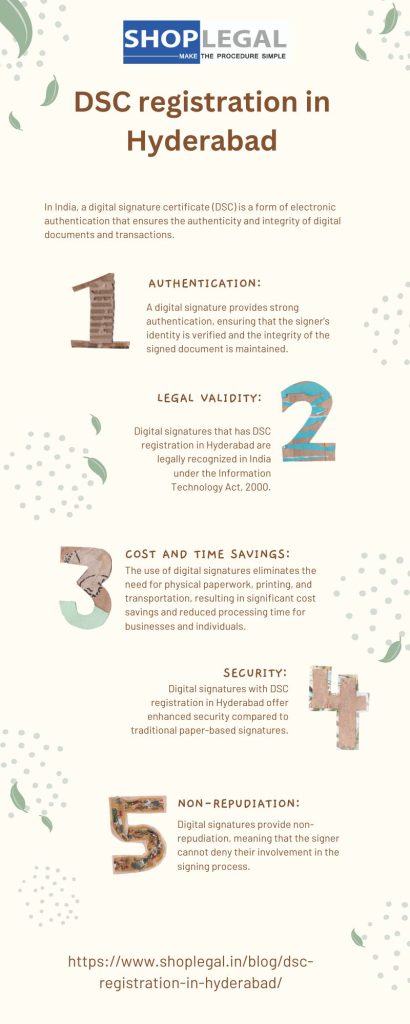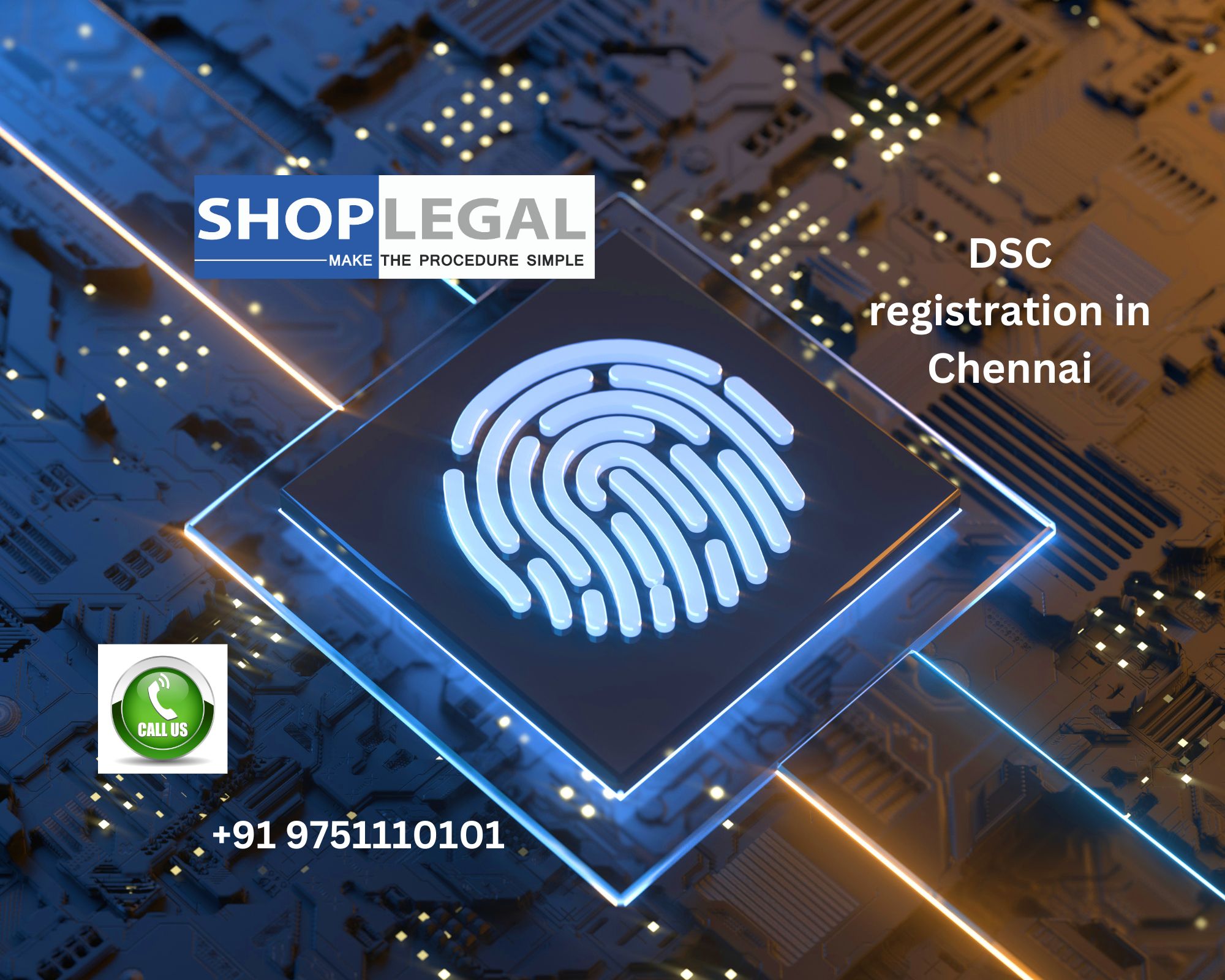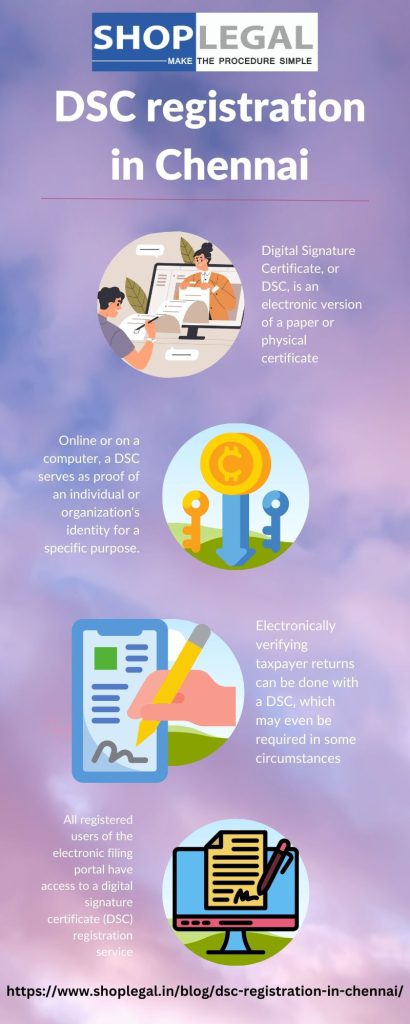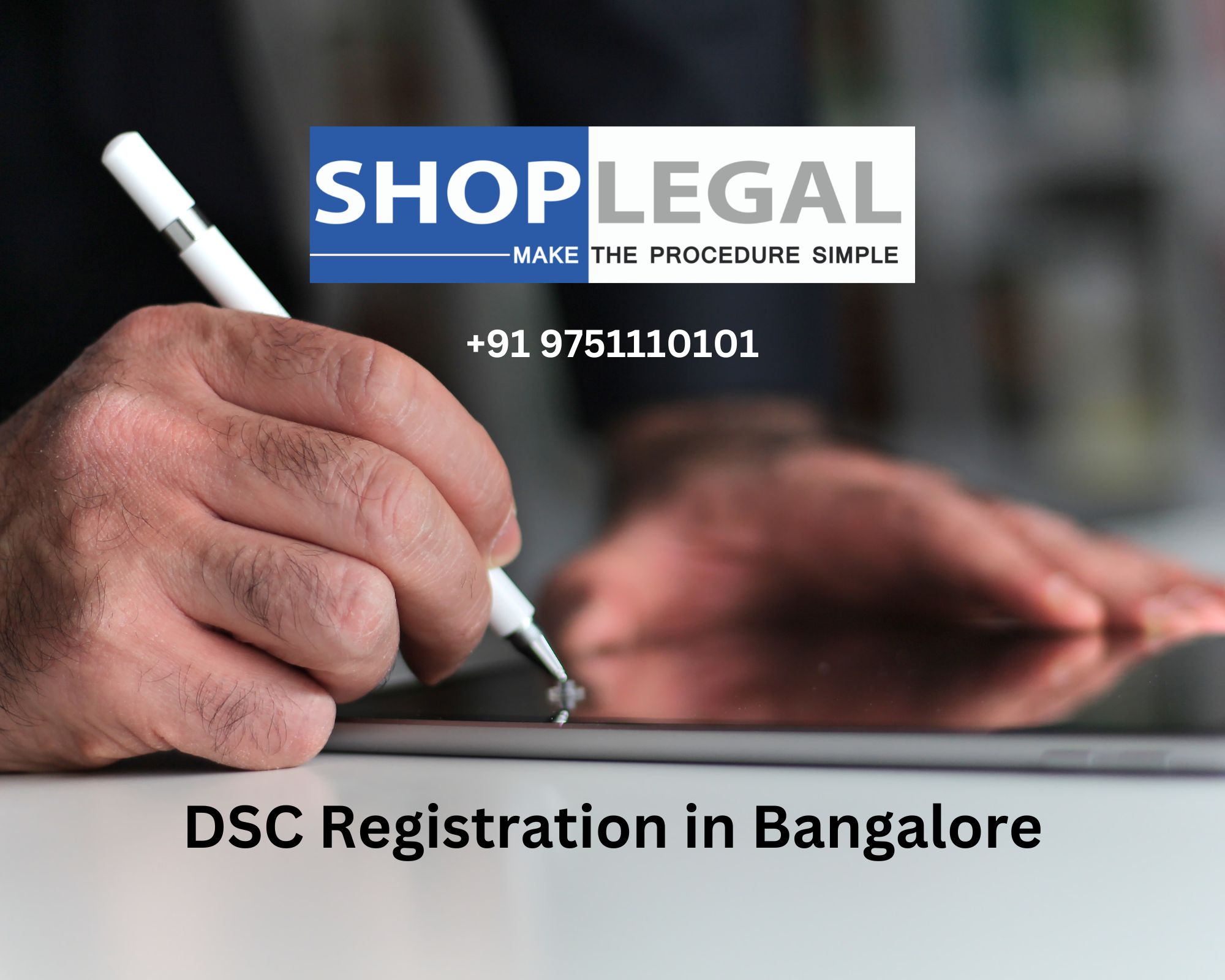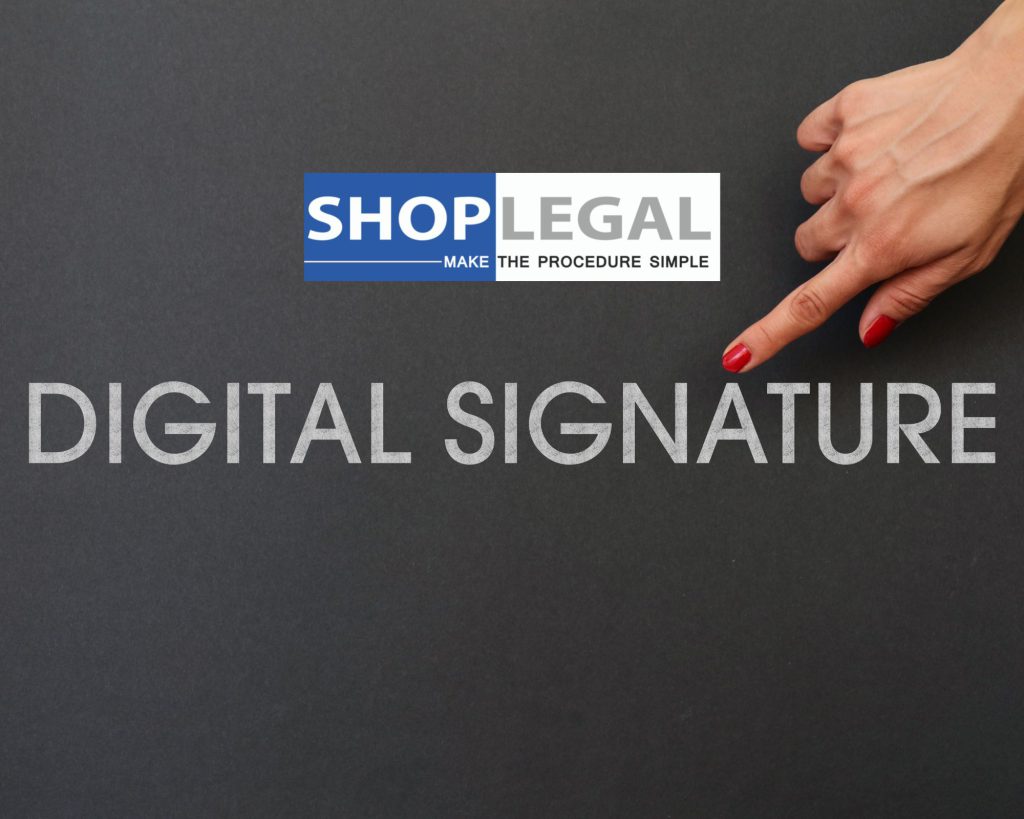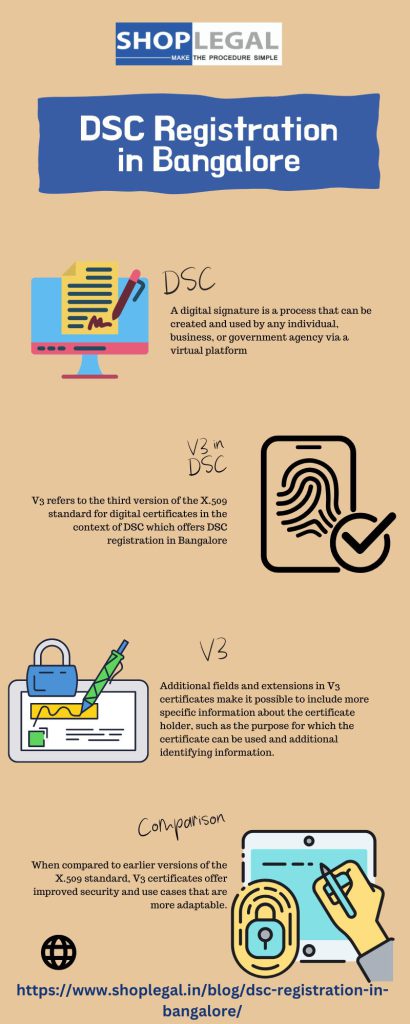DSC registration in Hyderabad
TALK TO EXPERTS
In India, a digital signature certificate (DSC) is a form of electronic authentication that ensures the authenticity and integrity of digital documents and transactions. It serves as a digital equivalent of a physical signature and provides legal validity to electronic communications and transactions. A DSC is issued by a licensed certifying authority (CA) and contains the digital identity of the individual or entity to which it is issued.
A digital signature is based on asymmetric encryption technology, where two mathematically related keys are generated: a private key and a public key. The private key is securely held by the individual or entity, while the public key is made available to others. When a document or message is digitally signed, the private key is used to create a unique digital signature, which can only be verified using the corresponding public key.
The use of digital signatures in India is governed by the Information Technology Act, 2000, and the rules and regulations issued thereunder, including the Information Technology (Certifying Authorities) Rules, 2000. The act provides legal recognition to digital signatures and treats them as equivalent to physical signatures.
Process
To obtain a DSC registration in Hyderabad, an individual or entity must follow a prescribed process:
Choose a Certifying Authority (CA):
A CA is an entity licensed by the Controller of Certifying Authorities (CCA) under the Ministry of Electronics and Information Technology. There are several licensed CAs in India, and the applicant must select a CA based on their requirements.
Application and Verification:
For DSC registration in Hyderabad, the applicant must submit an application form to the chosen CA along with the necessary supporting documents, such as identity proof and address proof. The CA verifies the applicant’s identity and documents as per the specified guidelines.
Key Generation:
Once the verification process is complete, the CA generates a pair of cryptographic keys: a private key and a corresponding public key. The private key is securely stored on a hardware token, smart card, or similar secure device, while the public key is included in the digital signature certificate.
Issuance of Digital Signature Certificate:
The CA issues the digital signature certificate to the applicant after DSC registration in Hyderabad by ensuring that all necessary requirements are met.
The certificate contains the applicant’s public key, along with other information such as the name of the CA, the validity period of the certificate, and the digital signature of the CA.
Usage and Renewal:
The digital signature certificate can be used by the applicant to digitally sign electronic documents, forms, and transactions. The certificate obtained after DSC registration in Hyderabad is typically valid for a specific period, after which it needs to be renewed by following the renewal process defined by the CA.
The use of a digital signature certificate offers several benefits in India:
Authentication:
A digital signature provides strong authentication, ensuring that the signer’s identity is verified and the integrity of the signed document is maintained. It assures the recipient that the document has not been tampered with after being signed.
Legal Validity:
Digital signatures that has DSC registration in Hyderabad are legally recognized in India under the Information Technology Act, 2000. They carry the same legal weight and validity as physical signatures, making them suitable for various legal and business transactions.
Cost and Time Savings:
The use of digital signatures eliminates the need for physical paperwork, printing, and transportation, resulting in significant cost savings and reduced processing time for businesses and individuals.
Security:
Digital signatures with DSC registration in Hyderabad offer enhanced security compared to traditional paper-based signatures. The private key used for signing remains in the possession of the signer, ensuring that only authorized individuals can sign documents.
Non-Repudiation:
Digital signatures provide non-repudiation, meaning that the signer cannot deny their involvement in the signing process. The digital signature with DSC registration in Hyderabad serves as strong evidence in case of disputes or legal proceedings.
How digital signature is created?
In India, digital signatures obtained through DSC registration in Hyderabad are created using asymmetric encryption technology, which involves the use of a pair of cryptographic keys: a private key and a corresponding public key.
The private key is securely held by the individual or entity, while the public key is made available to others for verification purposes. Here’s a step-by-step overview of how a digital signature is created in India:
Key Pair Generation:
The first step in creating a digital signature obtained through DSC registration in Hyderabad is generating a key pair consisting of a private key and a public key. This process is typically performed by a licensed Certifying Authority (CA) in India.
The private key is generated on a secure device, such as a cryptographic token or a smart card, which ensures its confidentiality and protection from unauthorized access. The private key remains under the control of the signer at all times.
Digital Signature Certificate (DSC) Application:
The individual or entity seeking a digital signature certificate must submit an application to a licensed Certifying Authority (CA) in India. The application for DSC registration in Hyderabad typically includes personal information, identity proof, and address proof as per the CA’s requirements.
Identity Verification:
The CA verifies the identity and credentials of the applicant based on the submitted documents. This process ensures that the digital signature is linked to the correct person or entity and helps establish trust in the authenticity of the signature.
Private Key Binding:
Once the identity verification is complete, the CA binds the verified identity to the applicant’s private key. This binding ensures that the private key is associated with the correct individual or entity, enhancing the reliability and integrity of the digital signature.
Digital Signature Certificate Issuance:
After the verification and binding process, the Certifying Authority issues a Digital Signature Certificate (DSC) to the applicant. The DSC includes information such as the individual’s or entity’s name, public key, expiration date, and the digital signature of the CA. The DSC is signed by the private key of the CA, further enhancing its authenticity and trustworthiness.
Digital Signature Creation:
To create a digital signature that can be obtained through DSC registration in Hyderabad, the signer uses their private key to perform a cryptographic operation on the document or data that needs to be signed.
This operation generates a unique digital signature that is mathematically linked to the content of the document and the signer’s private key. The digital signature acts as proof of the integrity and authenticity of the signed document.
Verification Process:
To verify the digital signature, the recipient or any other party can use the corresponding public key of the signer, which is embedded in the issued DSC. By applying a mathematical algorithm, the recipient can verify the digital signature that can be got through DSC registration in Hyderabad and confirm the integrity and authenticity of the signed document. If the digital signature is valid, it indicates that the document has not been tampered with and that it originated from the claimed signer.
Conclusion
We Shoplegal assist in the fastest DSC registration.
